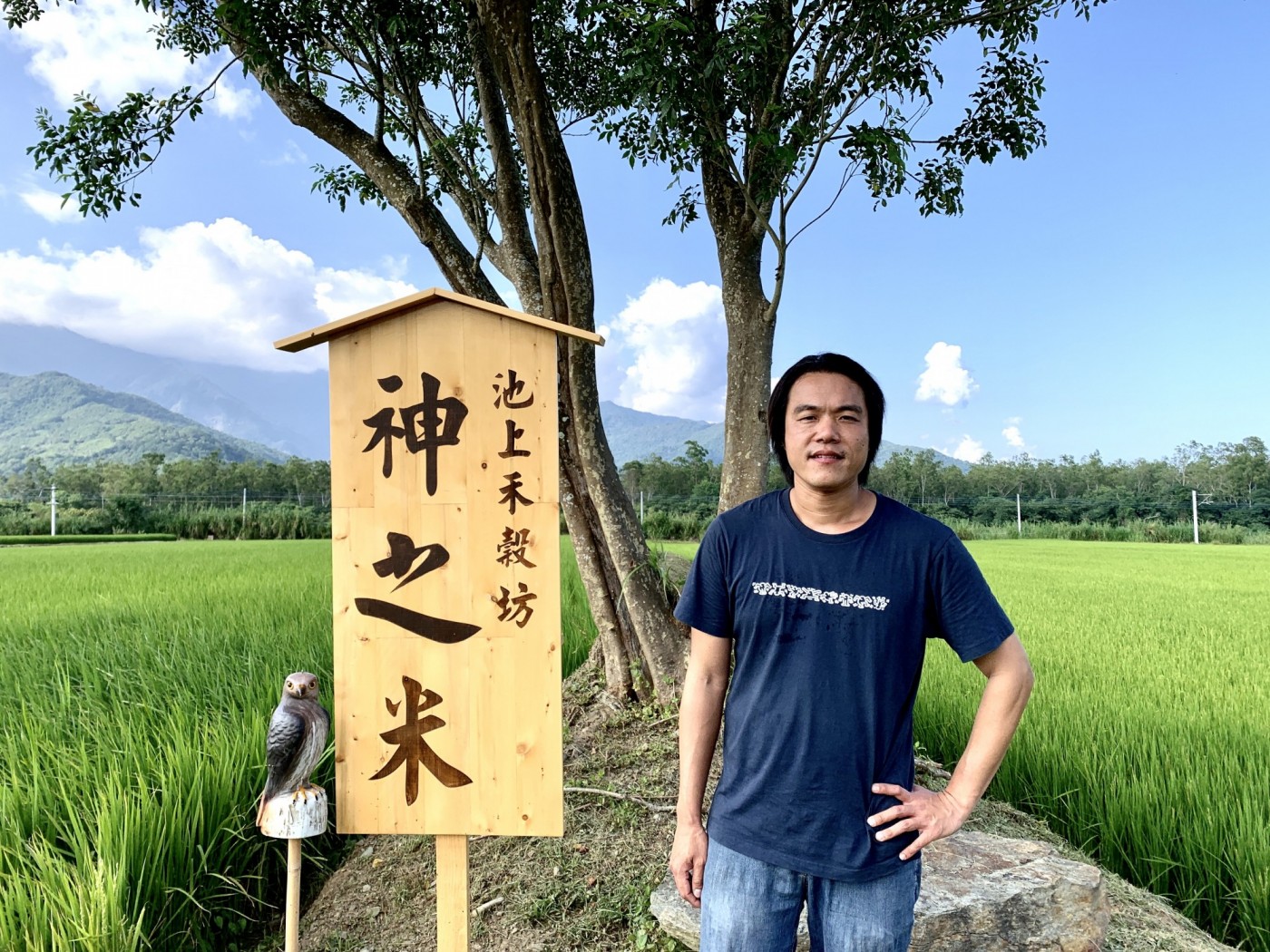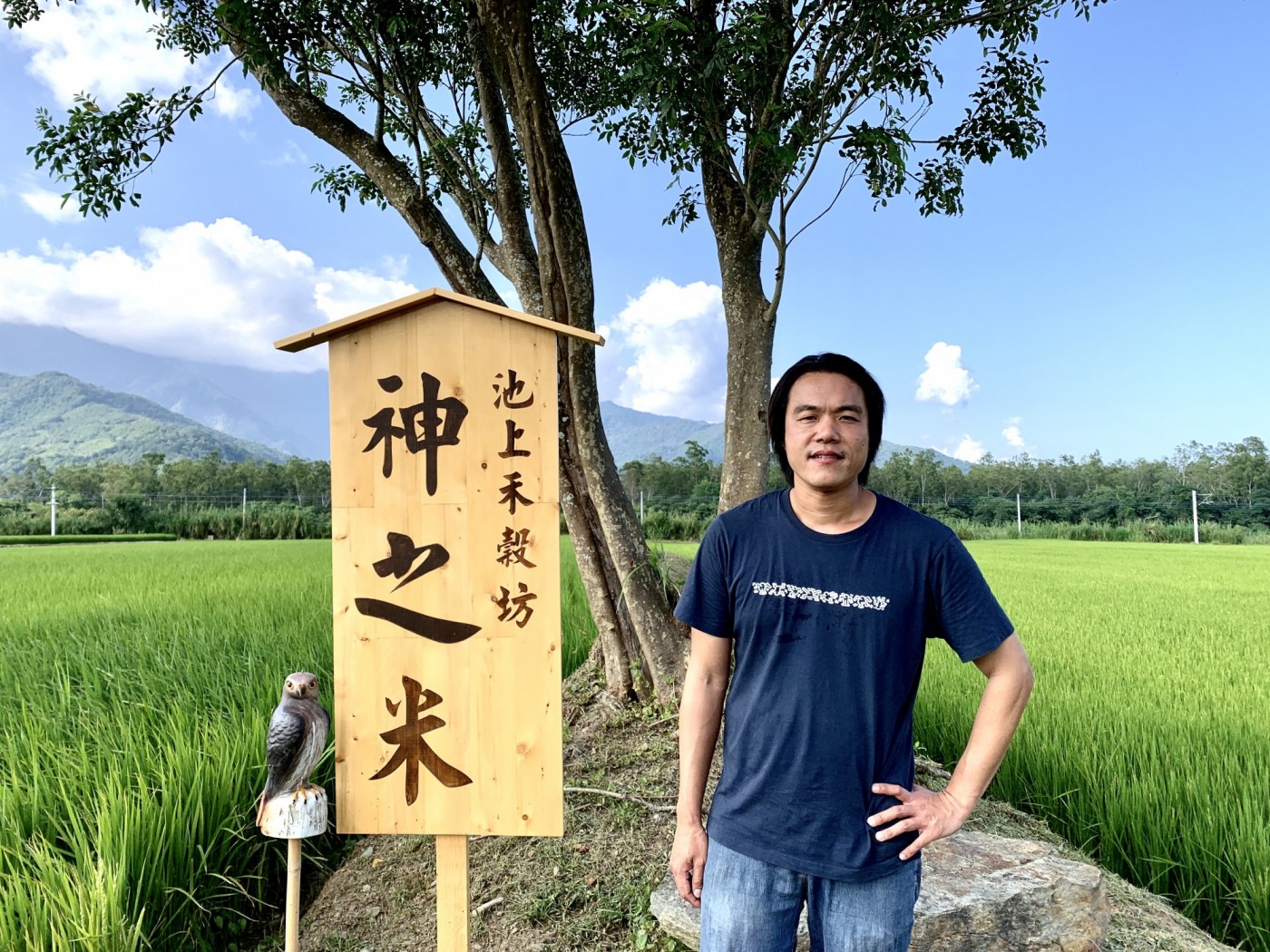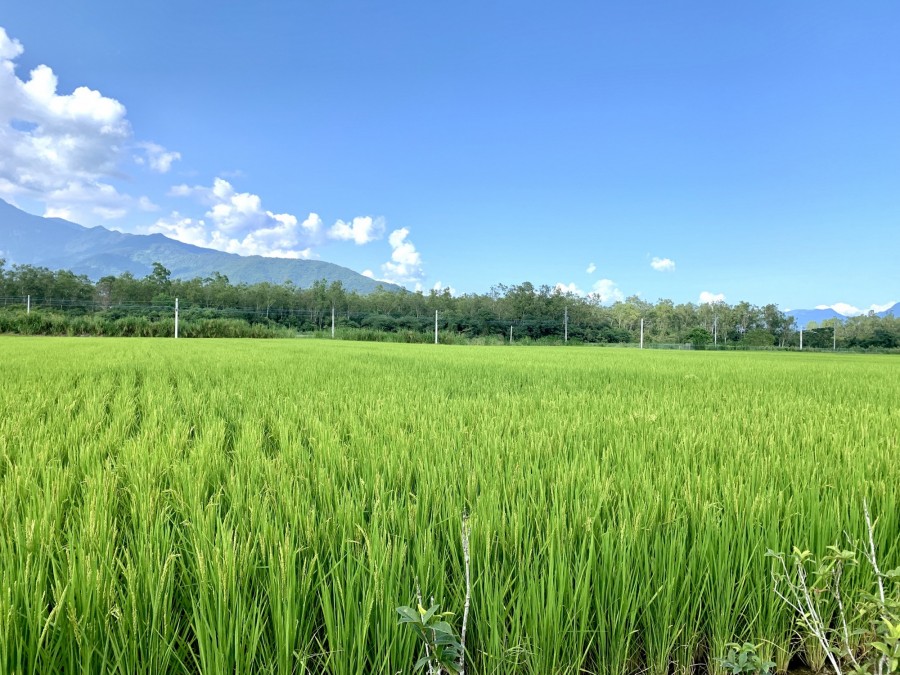المقالات


The train approached Taitung Chishang all the way. The green rice fields along the way were like carpets covering the ground. Many farmers here invested in organic rice cultivation. Water ducks, egrets, and ring-necked owls were regular visitors in the fields, leaving them on the soil. Passing footprints.
From these traces, we can see whether the ecological environment of a piece of farmland is good. However, when we buy a pack of rice, how do we know the conditions of planting, is it really organic and environmentally friendly?
10 years ago, I returned to Chishang to take over the farmland in my home. The third-generation young farmer Wei Ruiting had no knowledge of science and technology. A year ago, with an enthusiasm, he cooperated with the blockchain startup Odintin to produce resumes.
As if it is a stepping stone, the blockchain allows Wei Ruiting's brand "Ikegami Hegufang" to open up sales channels, not only listing Amazon to attack the North American market, carrying the Pope's table, and launching an amazing journey he had never thought of. .
In the past year, Wei Ruiting has accepted dozens of media interviews. The Financial Times even flew across the Pacific Ocean to Taitung in order to explore this paddy field with hidden blockchain secrets.
Not only has it attracted media attention, but it has also received substantial returns in sales. Earlier this year, Wei Ruiting spent more than 100,000 from his pocket to do Halal Certification , and also passed United States Approved by the Food and Drug Administration (FDA) , allowing Chishang's rice to break into the tables of the people of Dubai, Oman and Hong Kong; this summer, Chishang's organic rice was sent directly from Taiwan to the House of Santa Mata populated (Casa Santa Marta), becoming the Pope ’s lunch; in September, he attacked Amazon, the e-commerce company, and swept the taste buds of Chinese in California.
With so many places producing rice in the world, why do celebrities, well-known e-commerce companies, and big Middle Eastern countries recognize Wei Ruiting's rice? The blockchain is the key password that does not need to be translated.

Wei Ruiting, who is less than 40 years old, has a background in ecological agriculture from university to doctoral degree. He returned to his hometown 10 years ago to take over three generations of cultivated rice fields. At first, in order to promote rice at home, he went to the Taipei market to set up stalls on weekends. Not many bags sold.
Five years ago, he started to run his own brand "Ikegami Hegufang" and sold it on Facebook in small quantities. In order to emphasize organic cultivation, Wei Ruiting uploaded all the planting process to the Fan Zhuan. Noticed.
"I didn't know him at all, I don't know if he was round or flat." Before Odinding found Wei Ruiting's cooperative blockchain production resume, Wei Ruiting knew nothing about the blockchain and even thought that Odindin wanted to send "I later checked a lot of information myself, and probably knew what was going on. I started cooperating on the production data chain last August."
Being bold and giving it a try, but also almost couldn't cooperate. In the first month of cooperating, Wei Ruiting kept arguing with the engineer. The point is that the scientific and technological people do not understand the situation of agricultural knowledge and rice field practice, and Wei Ruiting does not understand the technology. The two parties are not on the same communication frequency at all. Problems one after another. Taitung farmland, the cooperation between the two sides is finally on track.
The production history is one of the successful blockchain applications of Odinding. The concept is to upload the environmental information to the blockchain on the blockchain. With the feature of non-tampering, consumers scan and paste the product. QR Code stickers can clearly understand the rice production process, and when there is a problem in food safety, it can also have a verification basis.
In the past, the Agricultural Committee also promoted production and sales resumes. The front-line farmers observed that the verification standards were not strict. If the products are to be exported, there is no strong trust mechanism behind them for inspection. Because we believe in the trust mechanism behind the blockchain, we provide alternative guarantees for product quality.
Odintin ’s production resume stickers are based on the production status recorded on the chain, and a relative number of stickers are distributed to farmers. Farmers have no way to print them. Each Code has a set of serial numbers to avoid repacking. As long as the Code is scanned, a notification will be broadcast to the farmers' mobile phones immediately. If the Code is scanned too many times and the scanned location is abnormal, the engineer will also issue a warning, indicating that there may be suspicion of being counterfeited.
In the discussion of blockchain technology, it will be questioned whether there is a possibility of fraud on the data on the chain. This can be observed in two levels. There is almost no room for counterfeit records uploaded through the sensor in real time. There will be a gray area where farmers manually upload data.
Farmers believe that in practice, if food is to be counterfeited, there is no way to prevent 100% of the blockage. Even the international halal and FDA certification will not be spotted every day. It is also because the role of the blockchain is not to verify the authenticity of the data, but to be like a notebook, to honestly record the data for future inspection and to actively upload the planting data to the chain, which has also become another type of credit.
The value of the blockchain is that there is no room for tampering with the data after the fact. The food production resume is on the chain. For those who believe in the blockchain, it can strengthen the sense of trust.
And increase the value of goods, like a letter of credit to persuade buyers. Wei Ruiting believes that the blockchain production history is also a concept of user payment. Consumers who want to know more details about the product and agree with the brand concept will naturally be willing to pay for it.
In the beginning, Odindin placed an Internet of Things (IoT) sensor in the farmland of Wei Ruiting, and recorded information such as sunlight, soil moisture, and soil temperature every two minutes, and stored the information on the chain.
In fact, the changes in the paddy field environment are not large. The frequency of recording once every two minutes is not only too high, but also a large amount of similar data. Taking a step back, data such as sunlight, soil moisture, and when to transplant rice are not of much value to consumers in determining whether to buy a product.
Odinding made an improvement earlier this year. In cooperation with the new “Agui Microclimate”, a new creation that is good at scientific agricultural production management solutions, a micro-meteorological station was set up in the field, and it could rely on solar panels to generate electricity. Record the rainfall, ultraviolet, wind speed, wind volume and other data, and extend the time for data to be chained from every two minutes to every two hours. The SIM card installed in the machine will automatically wind up immediately.
Not all wind and grass in the farmland will be automatically wound up, such as the types of fertilizers used, the types of animals photographed by infrared cameras, the time of sowing, land preparation, and weeding. For example, in order to comply with halal certification and the Pope diet, plant fertilizers must be used; because there is no image recognition function, Wei Ruiting must consult the animal illustrations to determine which animal was photographed, and then enter the information on the chain.
This information can also bring many benefits to farmers to grow rice in a more scientific way. In terms of fertilization, most of the older generations of farmers rely on experience to apply fertilizers. Through the sensor's record of changes in the farmland environment, farmers can use this as a basis to determine how much fertilizer to use and precisely control the cost of fertilizer consumption. Without causing waste.
In addition, the wind speed can also be used to judge whether the rice is at risk of rice fever, to remind the farmland whether the water needs to be cut off through the temperature, and even to determine which kind of rice is suitable for planting in each period, how much the expected yield is, and to manage the farmland. More systematic, farmers no longer look at the sky to eat.
The blockchain is not without its shortcomings. When we first manually uploaded the data, Wei Ruiting often recorded errors, but because the data on the chain could not be modified, there was only one additional piece of data to explain the previous errors. For older farmers, operating a mobile phone is even more of a challenge. He suggested that in the future, voice control functions should be combined to allow farmers to record data directly. In addition, infrared cameras should also add image recognition functions to allow data recording processes More automated.
After adjusting again and again, consumers can now scan the QR Code of production history, and you can see the producer ’s name, origin coordinates, product profile, current output and other information. If you want to know more, you can also see When the rice is planted, the light changes, the ambient temperature, and the time of preparing the land, fertilizing, harvesting, milling, and bagging. When the information is wound up, it will be translated into English at the same time.

** Consumers can scan the QR Code of production history, and they can see the producer's name, origin coordinates, product introduction, current output and other information.

If you specialize in halal-certified food and target FDA certification for export to overseas markets, you can especially emphasize this information when you are on the chain. It is also rice, but you can use product history to make product differentiation and enter different markets.
Whether food producers should introduce blockchain technology or not, the key to the core is to think clearly about the purpose of using blockchain. "Blockchain for the sake of blockchain is to put the cart before the horse."
Following Wei Ruiting's interview with Tanaka, he said that because of blockchain issues and the spread of the Internet, this year, many customers with a background in the technology industry have increased, and some people will directly follow the coordinates of the rice field recorded on the QR Code to On-site verification, "They came and told me," Do you really work here? "Where should I work if I don't work here?" Wei Ruiting couldn't help laughing.
Because of the blockchain, Wei Ruiting, who grows rice in Chishang, was seen by the world. He said that the biggest gain was to reach many customers from overseas channels and different backgrounds, so that more people knew about Taitung's organic rice. Looking back on this year's amazing journey, Wei Ruiting looked at the verdant green rice fields where he could not see the end, and said aloud, "This year was super stingy, it was so stupid."
Chief Editor: Xiao Minyun
Source: Digital Age
https://www.bnext.com.tw/article/55056/owlting-agriculture-blockchain